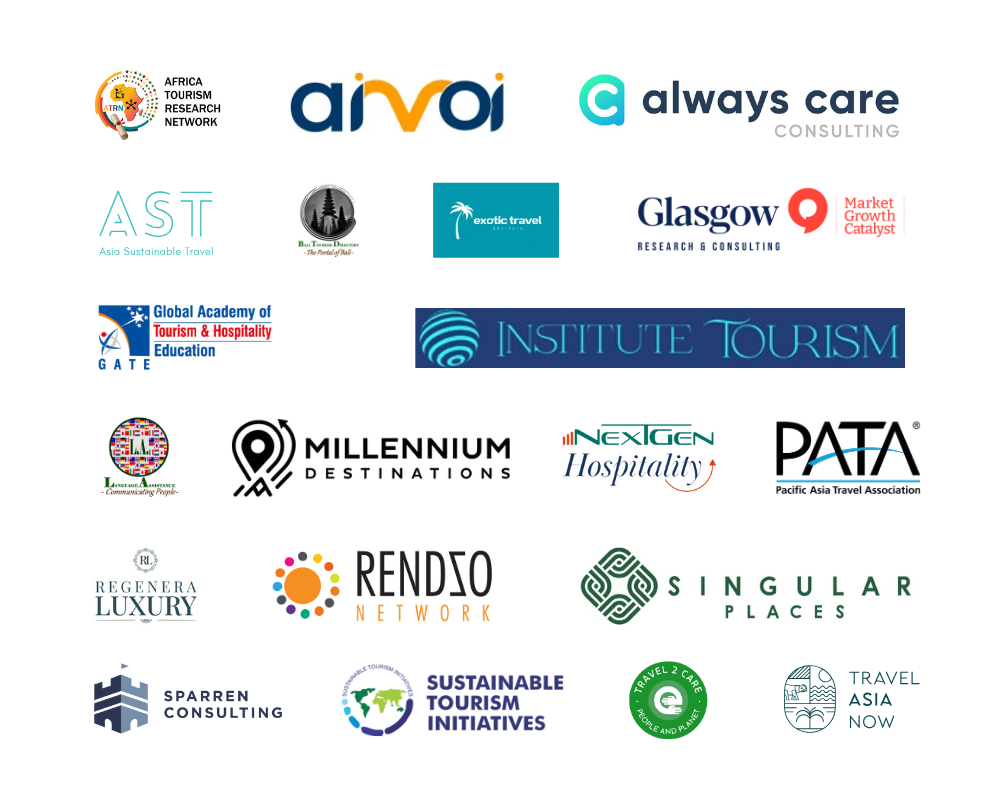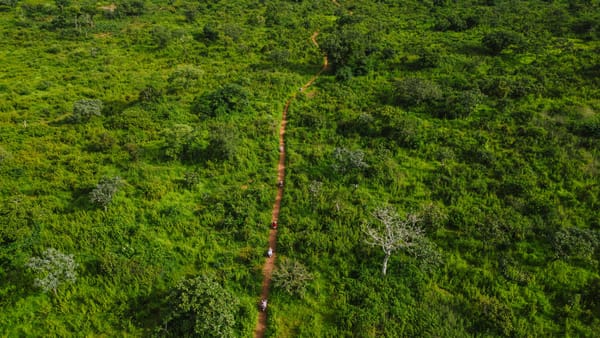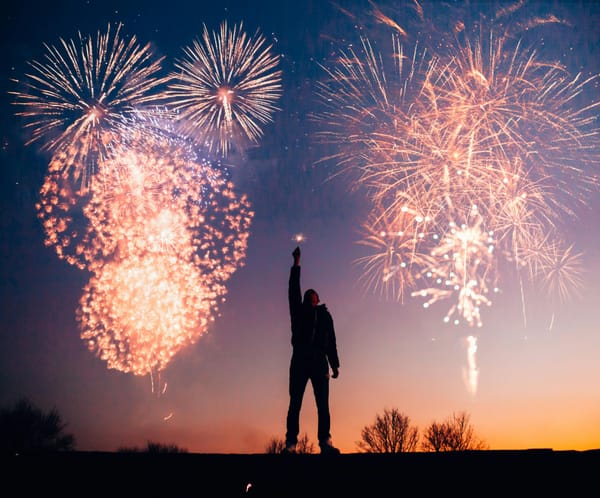Guilin looking at Tourism Trends


Dear reader,
Last week was spent by your humble editor in China. After successful talks with our partner for the GITF Guangzhou International Travel Fair 2026 conference and activities in Guangzhou, China provided the usual marvels of modern technology and service orientation. Almost all travel based on electric cars and bikes, the car headlines at the Tesla charging station signalling how many minutes still needed for full upload, chairing the lift with a room service robot in the hotel and of course the marvellous and comfortable Hispeed train ride from Guangzhou to Guilin, right on time arriving on less than three hours thanks to travelling with 285 km/hour. No ticket needed, just the passport which was used when buying the ticket with trip.com in Kathmandu.
The PATA/UN Tourism Forum on Tourism Trends and Outlook took place in its 19th edition at the Shangri-La in Guilin, the Osmanthus Forest city, known for its beautiful landscape. The forum has served for almost 20 years as an important annual Pan-Asia Pacific platform for policymakers, senior officials, researchers, and industry representatives to assess global and regional tourism trends, explore their implications, and shape future strategies. Your humble editor attended the forum several times before the pandemic; however, this was the first time since.
The goal to “share insights, analyse current challenges, and chart actionable pathways for the sector’s sustainable growth” is an important part of the event, and so are the many meetings with old friends and the serendipitous encounters with new contacts.
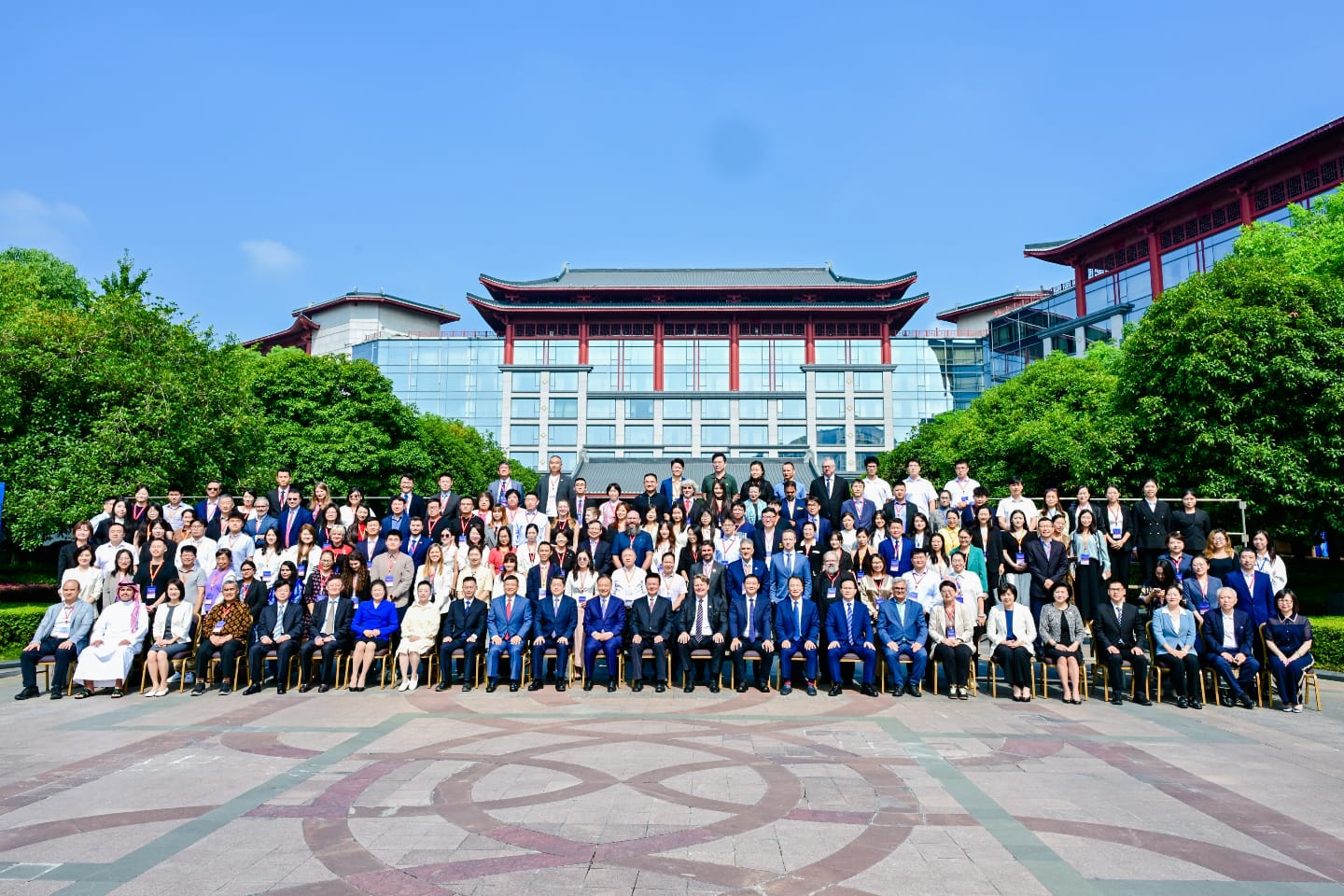
The UN Tourism, formerly and hopefully soon again known as UNWTO, was well represented on the global level with Senior Programme Officer Michel Julian and Executive Director and former CEO of WTA, Mr. Liu Shijun. For the Regional Director Asia-Pacific, both the current one, Mr. Harry Hwang, and the former one, Xu Jing, contributed to the success of the event.
Many PATA members were among the participants, led by Chairman Peter Semone and Executive Board member Alex Raynera, and by Ms. Fernanda Rodak, Project Manager. Alex explained to the audience the importance of the Vision statement of PATA “A Meaningful Pacific-Asia Tourism Economy” and pointed out “Prof M” (your humble editor) to the audience as the father of Meaningful Tourism.
In this session about “Measuring Success in the Tourism Industry” it was also very interesting to see how a more traditional approach by the Sarawak Tourism Authority, still looking at Arrival Numbers as main KPI to measure success, was contrasted not only by the Meaningful Tourism approach but also by the representative of the Maldives Tourism Ministry, which has started a program of “Redefining Success” with more attention to quality, impact and local participation.
The main trends discussed by high-ranking experts from government organisations, universities and major private companies concentrated not surprisingly again on AI and to a lesser extent on Climate Change. Another emerging topic is clearly strengthening cooperation across cultures and within the industry with the help of modern technology under the theme of “Future Proofing Destinations”.
There was a lack of variety of points of view in the important session on “Empowering Tourism Talent”, chaired by Prof. Billy Bai of HK PolyU STHM. All participants agreed that the universities should produce graduates who can function in today's hospitality industry (tourism was not a topic in this session). This clearly overlooks, from a Meaningful Tourism perspective, the need to educate for the future of tourism and hospitality, which will need to see changes in the way tourism is organised as well as in the products it is offering.
If there had been a gold medal for the best presentation, it would undoubtedly have been awarded to Dr. Duan Huilian, Managing Director Asia-Pacific and Americas of TUI Hotels & Resorts. She not only presented clear and concise numbers and trends for the European source market to the Asia-Pacific region, she also gave examples how TUI Care supports since many years sustainable tourism projects around the world. The readers of Meaningful Tourism Weekly should not be surprised to hear more about TUI Care and Meaningful Tourism in the near future.
The only speaker or panellist indicated in the program who did not show up happened to be Mr. Deepak Joshi, CEO of Nepal Tourism Board. He missed the chance to assure the many opinion leaders among the participants that Nepal is again safe to visit. Therefore, it fell to your humble editor to answer the many anxious questions about the situation in Nepal, being also the only person answering inquiries from the South China Morning Post for an article about this topic (see MTC News below).
The 19th edition of the forum showed again that direct contacts and communication, especially as part of such a medium-sized event, are indispensable in a people industry like tourism. In the closing ceremony, when Chairman Peter Semone went off-script and asked everybody who helped with the organisation and execution of the forum onto the stage, it became clear that there will be a strong demand for the 20th edition in the coming year again.
As always, all best wishes from Prof. Dr. Wolfgang Georg Arlt and the whole Meaningful Tourism Weekly team in Kathmandu and in Manila!


This is the second part of a five-part series of articles written by our Certified Trainer for Switzerland, Max Haberstroh, using Johann Wolfgang von Goethe's famous theatre play, Faust, to discuss the development and future of tourism, including the darker side of the success story.
If you missed the first part, you can check it out here.
The Great Game for a Higher Purpose
Part II
In Defiance of the Non-Violent Power of Form
Five years ago, the pandemic broke out. Using Covid-19 as the recurrent theme, this essay wants to extrapolate Faust's human drama to our time. The focus on Travel & Tourism may identify major aberrations, but also offers new chances for a sector at the crossroads: Either we really mean our own claim to concretize 'meaningfulness', or we continue to just pay lip service to sustainability and solidarity, while serving mainly monetary rules. In this case, Travel & Tourism, divested of its 'soul', would be going deeply 'Faustian'.
Part II (of V) puts Faust's hubris, illusions, and restlessness in the context of our time. The more we discover, the more doubts emerge, and we are never satisfied. Violent attempts to create paradise on Earth mostly end up in calamities and destruction. Tourism tries with marketing and promotion – the risk of ending up in overtourism and disillusion is real. However, there are natural patterns to follow.

The 'Faustian' Play
Rather than representing a special character, Faust epitomizes essential traits of modern mankind and its society. He reveals the motives and driving forces of our life that we mostly do not see. We may think differently, but our views and ideas of the world are largely determined by Faustian dynamics and restlessness. We experience them in our inability to relax – not in everyday life, and not even on holidays. Media-savvy influencers tell us why, how, and when to do what, for nothing else but to be part of the scene. We cover our body with tattoos, evocative as they are and faithful as they remain. While physical beauty fades away, beauty parlors fail to upgrade our facial attractiveness to the level of ‘Dorian Gray’s Portrait’ (Oscar Wilde). A false beauty anyway it is, in exchange for one’s precious soul.
Our hunt for eternal youth and desperate attempts to reorganize and ‘optimize’ our lives, in a false approach to 'higher purpose', make us blind to everything our present time offers. Mephisto, the devil’s smart messenger, describes this ‘Faustian poorness’ as follows: “No bliss satisfied him, no enjoyment, and so he tried to catch at shifting forms …”.,

Campi ya Kanzi: Where tourism empowers the Maasai and protects nature

Campi ya Kanzi is a model of sustainable tourism created in partnership with the Maasai people. This community-run ecolodge on Maasai land employs local staff, channels tourism revenue into the community, and supports the Maasai Wilderness Conservation Trust.
Powered by renewable energy, it offers a meaningful retreat with safaris guided by Maasai trackers and views of Kilimanjaro while preserving culture and nature.
Families can also stay at Chyulu Lodge, Africa’s first carbon-negative, zero-emission lodge, where children enjoy their own Maasai-guided safaris, fostering awareness and respect for the environment and culture.
#CommunityEmpowerment #EcoLodge #MeaningfulTourism #CarbonNegative #ZeroEmissions #MaasaiCulture #ConservationInAction #TravelWithPurpose
This article was originally published on Earth Changers.

New series of Meaningful Tourism webinars in November
MTC will offer a series of webinars about Meaningful Tourism in different countries and regions, from Northern Europe to South Africa and from Canada to Cambodia. Each webinar will look at the specific situation of tourism and how the Meaningful Tourism tools can help to create a more successful and more sustainable tourism development.
Each webinar will feature the Certified Trainer for Meaningful Tourism Transformational Game Workshops for this country, a second regional expert, an expert about Carbon Credit trading, and the founder and Executive Director of MTC, Prof. Dr. Arlt (“Prof M”).
Participation will, of course, be free of charge, and the webinars will begin broadcasting in November.
MTC on the situation of outbound tourism to Nepal in the South China Morning Post
The South China Morning Post, the main English-language newspaper in East Asia, featured the MTC in an article discussing the prospects of tourism, especially from China to Nepal, following the bloody events of September 8 and 9 in the country.
MTC on the Way of Travelling in 2035

Globalance-invest, a German company that supports investors in future-oriented projects, featured the MTC in an article discussing tourism, particularly in Asia, over the next ten years.
The article is written in German; however, tools like DeepL, ChatGPT, or Google Lens can assist with translating it into your preferred language.
MTC office in Kathmandu closed until October 5th, 2025
MTC is based in Kathmandu, and the coming days are the key period of Dashain, the main festive season among the abundance of holidays in this country.
Accordingly, the Nepal-based staff of MTC will enjoy a well-deserved break. Nevertheless, the Meaningful Tourism Weekly will be published with an editorial and a new installment of the series of articles about tourism from a Faustian point of view on October 2nd, thanks to our TAN partner in Manila.
The next full edition will be available again on October 9th, 2025.

World Tourism Day 2025: "Tourism and Sustainable Transformation"

Every September 27th since 1980, World Tourism Day has highlighted the social, cultural, political, and economic importance of tourism. Hosted by the United Nations World Tourism Organization (UNWTO), this global event champions cultural integration, economic growth, and sustainable practices, while addressing pressing issues within the tourism sector. It also serves as a platform for countries to showcase their unique cultures and innovate.
This year’s event, with the theme "Tourism and Sustainable Transformation," will be hosted in Melaka, Malaysia.
Ahead of the 2025 celebration, UN Secretary-General Antonio Guterres emphasised tourism’s transformative power. “It creates jobs, fuels local economies, supports infrastructure, and contributes to development far beyond gross domestic product (GDP),” he said. “Tourism strengthens bonds between people and places. It builds bridges across cultures, preserves traditions, and restores cultural heritage. It reminds us of our shared humanity and the richness of diversity.”
This article was originally published on Travel+Leisure India & South Asia.

Meaningful Tourism Community: The Meaningful Tourism Transformational Game Workshop Trainer
Giancarlo Fedeli, Ph.D, Trainer for Italy
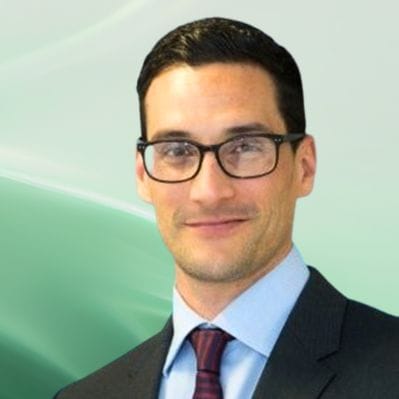
Giancarlo Fedeli, Ph.D. is an Associate Professor of Marketing and Management at the Università degli Studi di Bergamo, focusing on the intersections of tourism, technology, and marketing. He previously served as Professor of Tourism Management at IMC Krems University of Applied Sciences in Austria and spent several years at Glasgow Caledonian University’s Moffat Centre for Travel & Tourism, where he contributed to more than 50 international projects. Multilingual in English, Italian, Spanish, and German, he has taught and led research across Europe and Asia, combining academic expertise with practical consultancy in tourism marketing, business development, and strategic planning.

The Meaningful Tourism Weekly asked Giancarlo: What is the current situation of tourism in Italy and how can the Meaningful Tourism Paradigm help to support its development?
His answer:
Few countries embody the very essence of tourism like Italy. Synonymous with culture, art, cuisine, and breathtaking landscapes, Italy is not only one of the world's most visited nations but also a benchmark for what global tourism aspires to be. From Rome's Colosseum to Venice's canals, Tuscany's vineyards to the Amalfi Coast's cliffs, Italy offers an unrivalled variety of experiences that continues to attract millions.
Post-pandemic, the sector is thriving again: arrivals and spending are climbing, especially from loyal markets such as the United States, Germany, and France, while global events like the Jubilee reaffirm Italy's central place in the global tourism map.
But leadership comes with pressure. Inflation has pushed up costs, making domestic travel less accessible for Italians. World-famous cities are facing overtourism, which strains housing, infrastructure, and the quality of life for residents, while also placing heritage and the environment at risk.
Meanwhile, the global traveller is evolving. Tourists no longer seek only monuments and museums; they desire authenticity, sustainability, and memorable encounters with people and places. Italy's challenge is to adapt without losing its soul.
The Meaningful Tourism paradigm provides a timely solution. Rather than chasing visitor numbers, it seeks to maximize benefits for all stakeholders: travellers, residents, employees, businesses, government, and the environment. It measures success through heritage preservation, community well-being, and environmental quality as much as through arrivals. For Italy, this means spreading tourism beyond peak seasons, showcasing hidden gems beyond the overcrowded classics, and embedding visible sustainability practices that resonate with responsible travellers.
By adopting this vision, Italy can move from being not just the most beloved destination, but the most meaningful one; demonstrating that global leadership in tourism is not about volume, but about creating value that endures for visitors and communities alike."
MTC Certified Trainers
Please find below the updated overview of all our Certified Trainers for the Meaningful Tourism Transformational Game Workshop and the updated World Map showing the countries directly and indirectly covered at the moment.
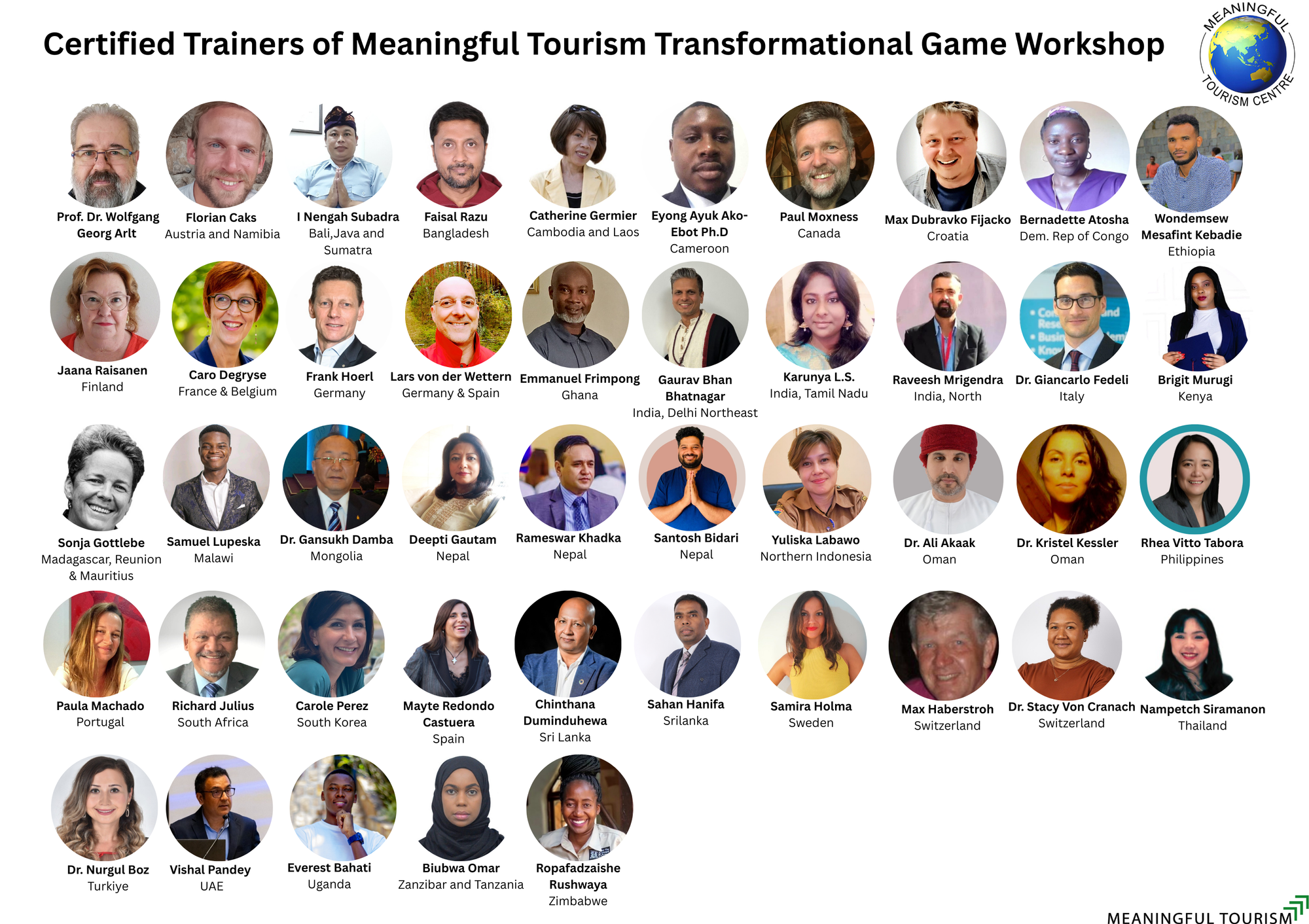
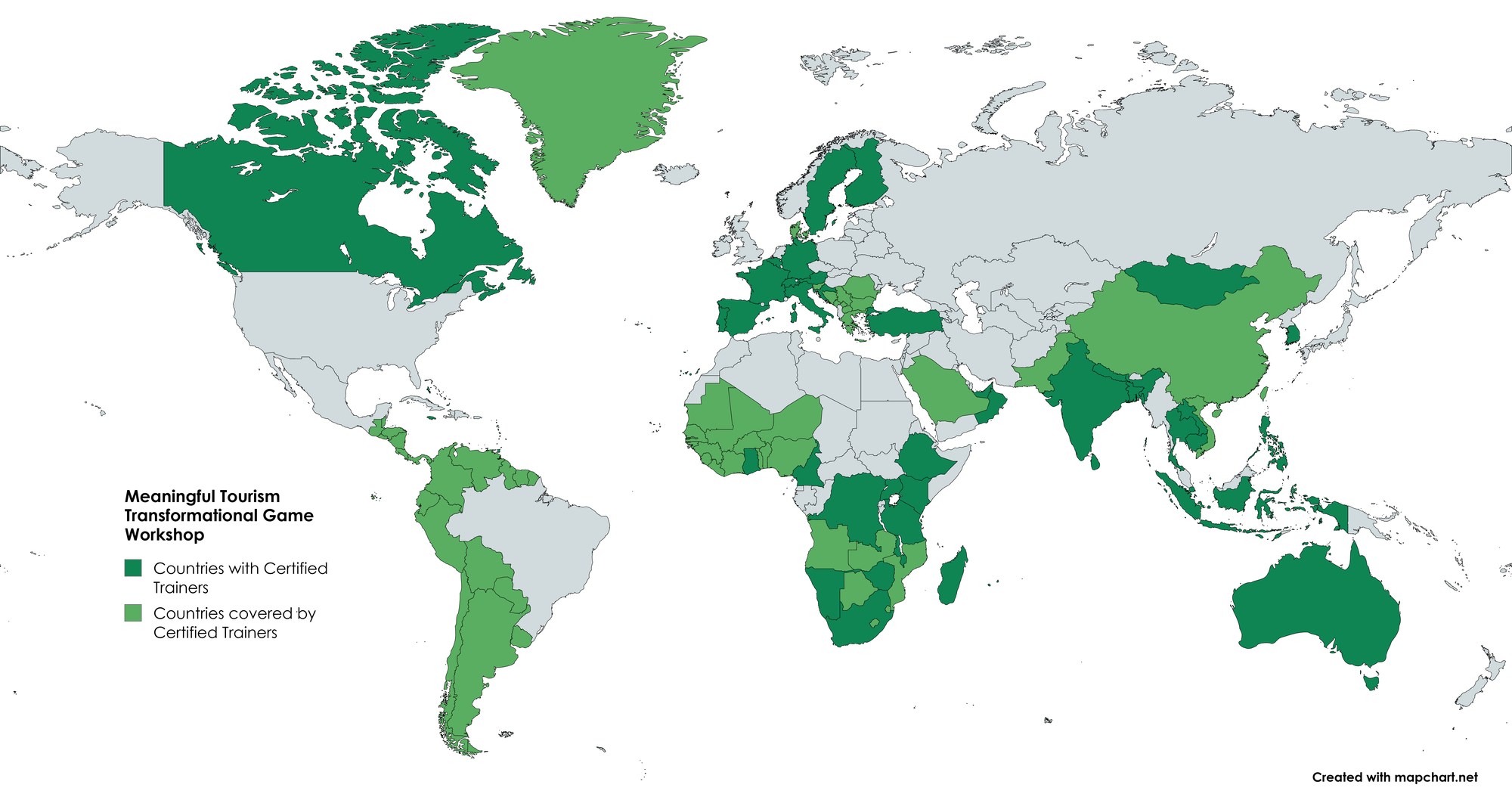
With almost 50 Certified Trainers, many countries and regions of the world are already covered. However, MTC continues to look for professionals with experience in training or lecturing and a passion for sustainable tourism.
If you are interested in becoming a Certified Trainer for the Meaningful Tourism Transformational Game Workshop for a country not marked in dark green on the map above, please contact us at office@meaningfultourismcentre.org.

MTC special discount for Sustainable Destinations Forum 2025

Our partner, Green Destinations, is offering all readers of Meaningful Tourism Weekly a special 25% discount on the 160 Euro participation fee for the Sustainable Destinations Forum (SDF) 2025, which will happen in Dubai on October 28-30, 2025.
Prof. Dr. Wolfgang Georg Arlt will be one of the speakers, and several other members of the Meaningful Tourism Community will also be participating.
Do not miss this important conference! To get the 25% discount, please contact Meaningful Tourism Weekly directly.
Meaningful Tourism Transformational Game Workshop at World Travel Market, London
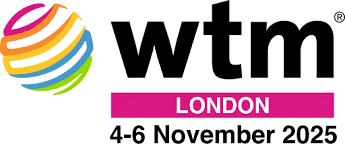
World Travel Market (WTM) in London is one of the must-attend annual events for key players in the tourism industry. The Meaningful Tourism Centre will offer a special Meaningful Tourism Transformational Game Workshop on the day before the start of WTM 2025, on November 3, 2025, from 9:00 to 16:00 hours. The workshop will be conducted by Prof. Dr. Wolfgang Georg Arlt FRGS FRAS, the founder of MTC.
There are only 30 seats available, so if you already know that you will attend WTM 2025, make sure you arrange your schedule to arrive on time for the training workshop on Monday, November 3, 2025.
Book your seat now and enjoy the Early Bird fee.
Venue: Central London, details to be advised. Transport from/to the hotel or Excel London can be arranged on request at a special rate.
• Early Bird participation fee for bookings paid before September 30, 2025: 175 Euros per person
• Full participation fee for bookings starting October 1, 2025: 200 Euros per person
VAT included if applicable.
Two or more seats booked at the same time enjoy an additional 10% discount.
Please note that payments are non-refundable. However, a change of participant is possible without additional fee until one day before the training workshop.
The participation fee includes training workshop participation, a certificate of participation, one year of free access to all content, including the Meaningful Tourism Weekly Library reserved for paid subscription holders, coffee/tea, cookies, and a vegetarian and non-vegetarian lunch buffet.
On the evening of November 3, 2025, there will also be a (self-paid) dinner followed by drinks with an opportunity to network with participants and to meet several of the Meaningful Tourism trainers from different countries.
For bookings, please contact office@meaningfultourismcentre.org.
Bookings will be closed once 30 reservations have been reached. Book today and enjoy the Early Bird fee.
#MeaningfulTourismParadigm #Guilin #TourismTrends #SustainableDestinationsForum2025
About Meaningful Tourism Weekly
Meaningful Tourism Weekly is published every Thursday by Meaningful Tourism Centre (MTC) - London and Kathmandu in collaboration with Travel Asia Now, led by Rhea Vitto Tabora. This partnership enhances the newsletter’s professional production and distribution, bringing added value to our readers.
Each issue features Editorial, updates on MTC activities, a Best Practice Example, a profile of an MTC-certified trainer, news about upcoming events, and occasionally additional op-ed pieces from guest authors. Carefully selected news items, including videos and podcasts, are also included, with links to their original sources in the Meaningful Tourism News section.
Subscription to Meaningful Tourism Weekly is free, with the addition of a paid content section that includes a library of surveys, exclusive articles, conference presentations, and statistical data, offering subscribers invaluable resources.
Sponsorship opportunities are available for those interested in supporting this initiative.
For more information about MTC's training programs, market research, product adaptation, consulting services, conferences, strategy development, and marketing, visit our website or email us at info@meaningfultourismcentre.org.

